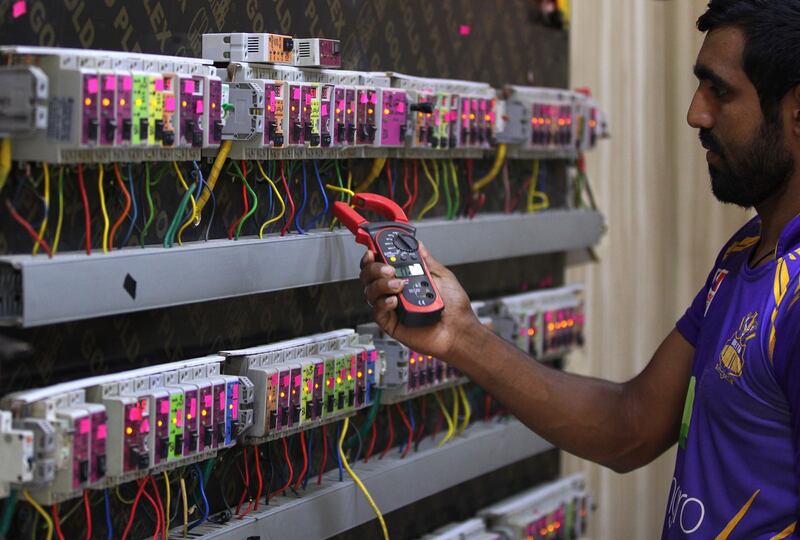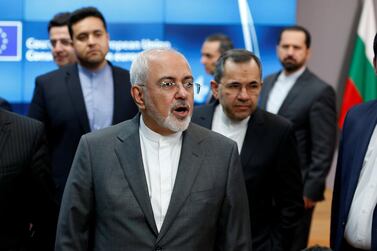Iraq is establishing a new financial system to sidestep US sanctions and enable it to continue buying Iranian gas and electricity.
US President Donald Trump reimposed sanctions on Iran’s energy and finance sectors last November after a decision to withdraw from a 2015 nuclear deal between major powers and Tehran.
The Iraqi system is said to be similar to Europe’s Instex, which will help Iran to buy food and medicine, the two items not covered by US sanctions, AFP reported.
Iraqi officials confirmed that talks have been going on for months to establish a “special purpose vehicle” that would allow Baghdad to pay for imported Iranian energy in Iraqi dinars.
"The Iraqi government will continue to pay Iran for gas by depositing money into a special bank account inside Iraq, in Iraqi dinars," an official said.
Baghdad has told Washington about its deal with Tehran.
Tension between Iraq's two closest allies have recently escalated after attacks on tankers in the Arabian Gulf and on Saudi Arabia's oil industry. Washington has blamed Tehran for the attacks.
The US has recently extended a sanction waiver for Iraq, enabling it to import natural gas from Iran for another three months.
Iranian energy imports are vital to Iraq, which faces chronic power cuts that often leave homes without power for up to 20 hours a day.
Iraq's reliance on Iran is uncomfortable for Washington, which regards Tehran as its top regional foe.
Last summer, Iraq had mass protests over power cuts and a lack of water. The demonstrations have started again this year as summer temperatures have already passed seasonal averages.
Iraqi Prime Minister Adel Abdul Mahdi and Saudi Arabia’s King Salman discussed co-ordination over stabilising oil prices in a phone call on Monday.
“The talks were primarily over the brotherly countries co-operating in the Opec conference for oil … and to achieve oil price stability in the coming period,” Mr Abdul Mahdi’s office said in a statement.







